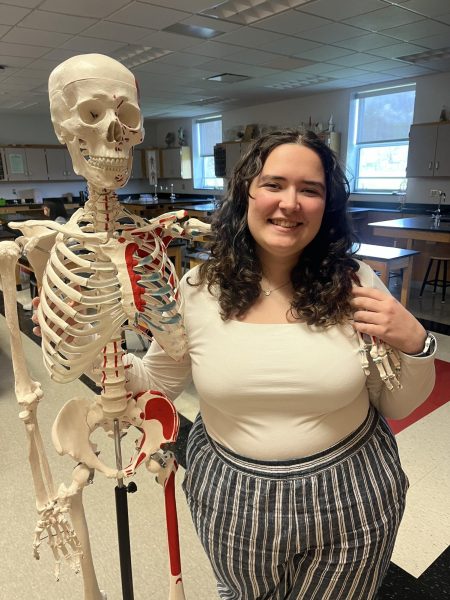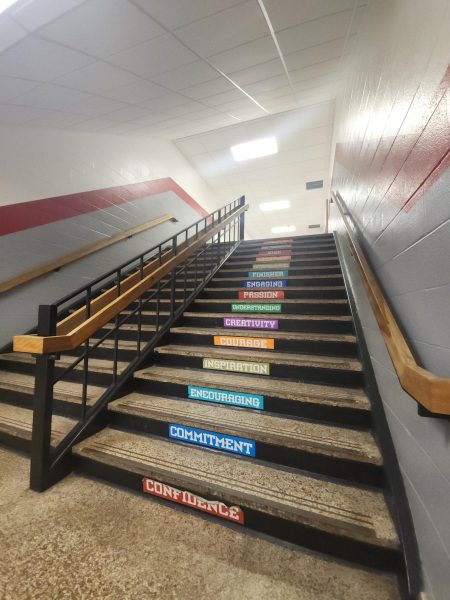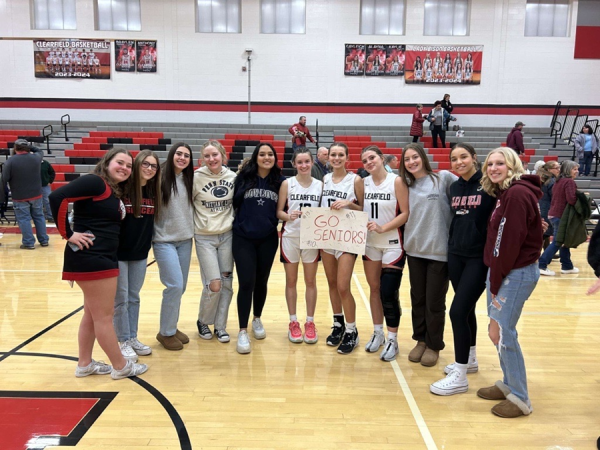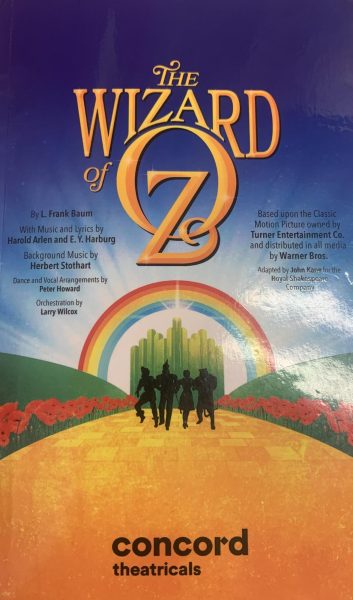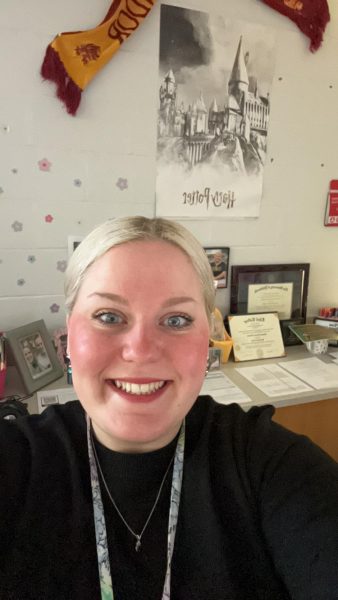Student poets express their passion in Poetry Out Loud competition
From left to right: Adam Miller. Karson Kline, Olivia Bender, Benjamin Leighow, Isaac Owens, and David Graham.
February 17, 2022
Poetry is alive and well at Clearfield Area Junior-Senior High School, for students were given the opportunity of delivering a poem of their choice to a board of judges in the Poetry Out Loud competition held on January 25. The student with the most adequate and eye-catching delivery was chosen as the winner.
The Poetry Out Loud contest is a regional contest that is available to students world-wide. This contest has been available at the high school since the 2019-2020 school year. For this 2021-2022 school year, six students participated in the competition with a first, second, and third place selected. The judges of the in-school competition can be recognized as the following members of staff and administration: Mrs. Borden, Mrs. Moyer, Mr. Yingling, Mr. Switala, Mr. Scaife, and Mrs. Prestash.
In terms of winners, Olivia Bender, senior, placed 2nd and fellow senior Isaac Owens placed 3rd. Senior, Ben Leighow, was the first-place winner, and his chosen poem was “After the Winter” by Claude McKay. Ben advanced to the district’s competition held February 4.
Districts is a daunting experience for any athlete or performer, but this year, the Poetry Out Loud districts competition looks different than previous years. For instance, senior English teacher Mrs. Warlow is discouraged to inform, “Usually it’s held at Webster’s Bookstore in downtown State College; however, due to the uptick in Covid cases, it was virtual this year. That was disappointing, because Webster’s is such a unique place and prior students really enjoyed the environment and attending in person the last time!” Bending this tradition is upsetting and will not give district competitors the full experience, but they will be under less nerve-racking circumstances.
A class of 2020 graduate, Kimberly Wilsoncroft, was a first place winner of the POL competition and went to districts herself. “To the speakers going to districts,” she advises, “I could tell you the cheesy cliché advice which is to practice, (which is important!) but I think the better piece of advice I can give you is to just give it your all. Really ~ feel ~ what you’re reading. Having an emotional connection to the poem you’re reading is really what makes you stand out and let’s people see your passion. Focus on the parts of the poem you feel really connected to and let it show. Don’t be afraid to feel vulnerable!” Kimberly Wilsoncroft emphasizes the importance of authenticity and laying all you have onto the table.
Including authenticity, a lot of other factors are weighted and scored in order for the judges to make the best decision. To explain, Mrs. Warlow states, “Each judge has a rubric in which to score, and they are judged on these areas: physical presence, voice and articulation, dramatic appropriateness, evidence of understanding, accuracy, and overall performance. The contestants all did an exceptional job and excelled in different areas; however, Ben had the most points at the end to advance.
Ben Leighow was chosen as the winner because he was proficient in all categories. However, every speaker has their strengths and weaknesses. When asked his greatest strength and greatest weakness, Ben responded, “My greatest strength is my ability to understand and relate emotionally to the words of the poem. My biggest weakness is that I can sometimes overdramatize the poem. When I’m on stage, all I need to do is breathe, remember the words, and then just start talking.” Ben recognizes that his strengths can also be his weakness.
Any student can participate in the Poetry Out Loud contest, but why should they? Mrs. Warlow reasons, “It’s a lot of fun! It helps build confidence with having to memorize and speak in front of an audience. It’s great for students who like reading poetry. Students pick a poem from an anthology, so the pressure to write a poem isn’t there, it’s the ‘fun’ part of learning the poem and reciting!” The teachers of the ELA department highly encourage any student in grades 9-12 to participate in the upcoming year’s POL contest.


